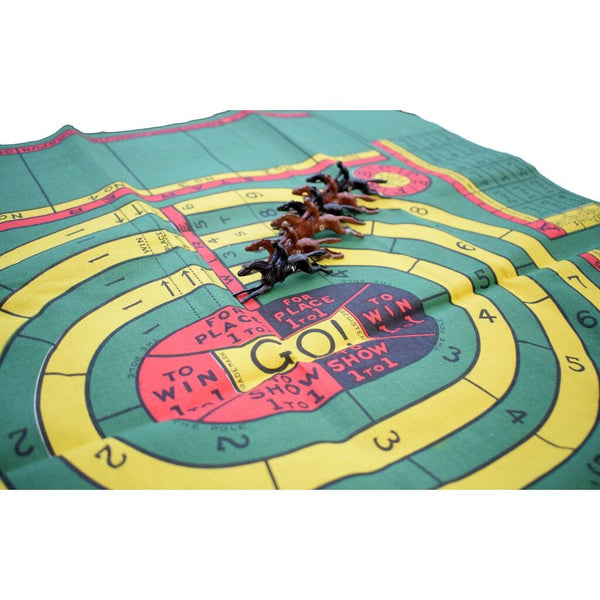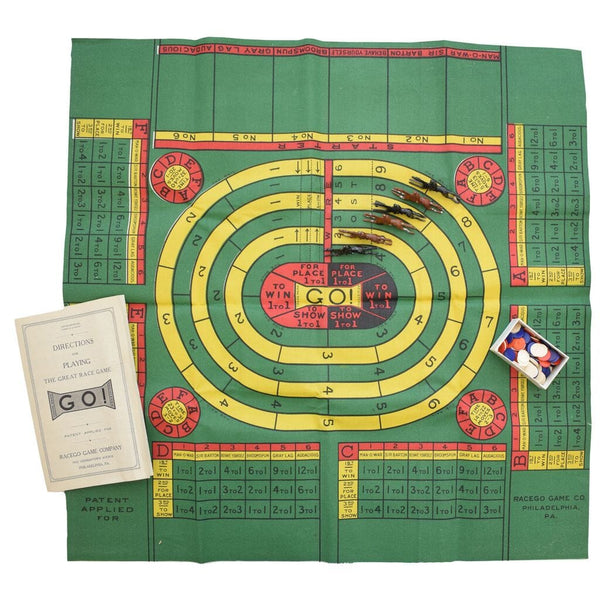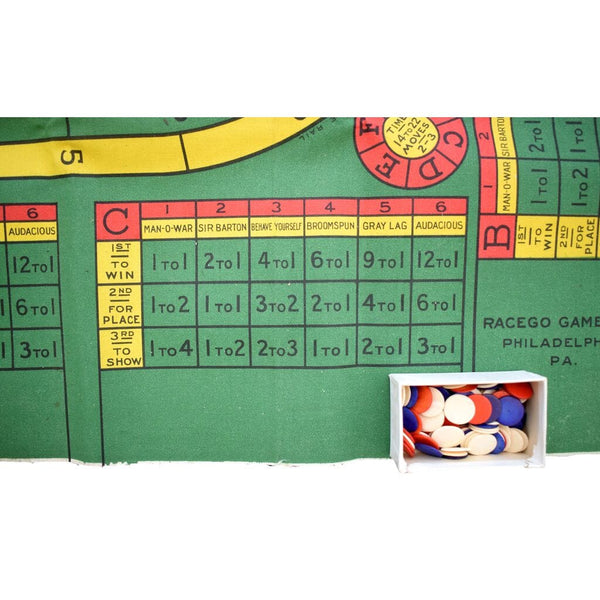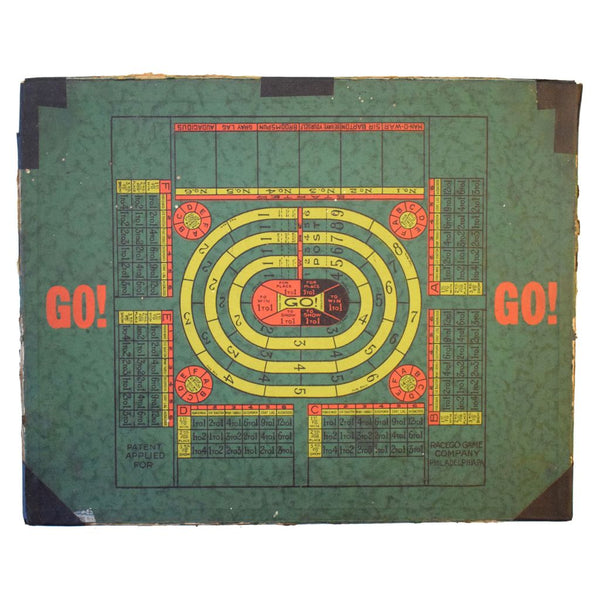Go! The Great Race Game.
Philadelphia: Racego Game Company, (1921). Box: 9-3/4 x 12 inches. Game includes: linen board printed in green, yellow, black and red, 26-1/2 x 26-3/4 inches when unfolded; [4]pp set of directions for play, printed in black on cream paper; six metal playing pieces in the shape of jockeys riding horses, painted black or brown, numbered consecutively, and housed in a cardboard holder with individual "stalls" for the pieces; cardboard box containing 60 flat, circular red, white and blue bone betting counters.
Based on a description of Go! in a 1922 ad in Modern Stationer, this copy of the game is LACKING 40 of the 100 total betting counters called for in a contemporary advertisement, but is otherwise complete. Heavy wear to box, with splitting to all edges and numerous neat black tape repairs; apron missing from one side of the lid, and the lid is now taped to the base at that edge, so it opens like a hinge. Light wear to directions; some scuffing to playing pieces. Good in a Poor box.
Scarce horse racing-themed board game that capitalizes on the popularity of the sport in the 1920s, with pieces named Man o' War, Sir Barton, Behave Yourself, Broomspun, Gray Lag, and Audacious -- all famous racing horses of the era. Using an ordinary deck of cards (not included), players move the pieces around the board in such a way that "[t]he horses speed up or drop back, pass each other and fight for the 'pole' and inside positions just as the live ones do on the track" (Directions, p.[2]). Meanwhile, the players place wagers on the winners, colors and time, using white, red or blue betting counters to indicate the amount of their wager.
Racego Game Company may have been formed solely to sell this game, as we find no record of other games associated with it, and advertisements for the game only in 1922. The copyright holder, James B. Ludlow, appears to have been a Philadelphia salesman at the time; census records indicate that he sold a variety of goods, but in 1920 was engaged in selling rubber tires.
Not located in OCLC, although we know of one other holding at UVA.









